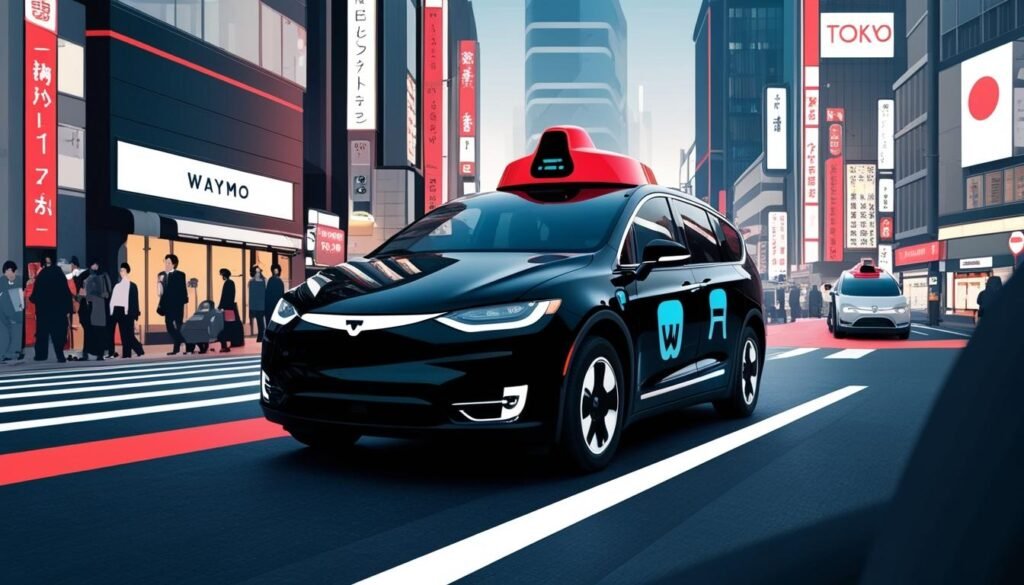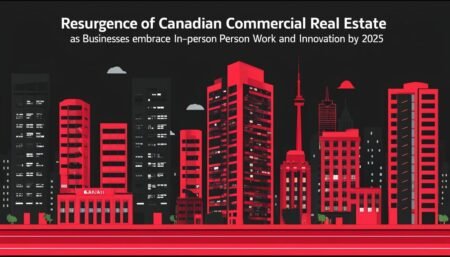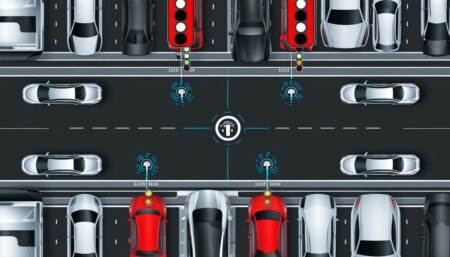Alphabet’s Waymo announces plans to expand its robotaxi services to Tokyo in early 2025, marking its first entry into the Asian market amidst regulatory challenges in the US.
Alphabet’s Waymo is set to further its international presence by launching its robotaxi services in Tokyo, Japan, in early 2025. The announcement comes after the company has already made significant strides in self-driving technology within the United States, particularly in cities such as San Francisco, Los Angeles, and Phoenix.
This ambitious expansion into Tokyo marks Waymo’s first entry into the Asian market, aimed at enhancing urban mobility in a city known for its advanced infrastructure and heavy traffic. In preparation for this new venture, Waymo has formed partnerships with two prominent local companies: Nihon Kotsu, the largest taxi company in Tokyo, and GO, a popular taxi app. These partnerships will assist Waymo in adapting its autonomous vehicle technology to the local context and navigating Japan’s unique traffic conditions.
Waymo’s new operations in Tokyo will involve a comprehensive mapping phase where drivers will manually operate vehicles to collect data on key streets. This initial step is crucial as it will allow Waymo’s artificial intelligence systems to learn about the driving culture and road regulations that characterize the country, which notably includes a left-hand traffic scheme—a significant change from the right-hand driving seen in the United States. Waymo has confirmed that it will adapt its fleet, potentially converting its vehicles, such as the Jaguar I-PACE, to right-hand drive for the Japanese market.
In a recent statement, Waymo noted, “Our upcoming road trip to Tokyo gives us the chance to work alongside local partners, government officials, and community groups to understand the new landscape.” The company aims to effectively integrate its services into Tokyo’s existing transportation ecosystem to offer convenience and efficiency to residents.
Despite the promising prospects, Waymo’s expansion comes in the wake of increased scrutiny and regulatory challenges faced by the robotaxi industry in the U.S. Recent years have seen significant controversies, including accidents involving self-driving vehicles that led to suspensions of services for firms like Waymo and its rival, Cruise—a subsidiary of General Motors. GM recently announced its exit from the robotaxi business to refocus on autonomous driving technology for private vehicles, citing the extensive resources needed to scale and the competitiveness of the market.
Financially, Waymo is a substantial part of Alphabet’s Other Bets segment, which reported an operating loss of $1.1 billion in the third quarter of 2024. However, Alphabet’s Chief Financial Officer, Anat Ashkenazi, has emphasised that the company will continue to pursue geographical expansion, aiming to reach more customers in both existing and new markets.
The landscape of the robotaxi industry continues to evolve, highlighted not only by Waymo’s international growth but also by emerging competition from Tesla. Tesla unveiled its own robotaxi, the Cybercab, last month, further intensifying the race in autonomous transport. As Waymo prepares for its entry into the vibrant market of Tokyo, the future of robotaxi operations remains a key area of interest for investors and consumers alike.
Source: Noah Wire Services
- https://www.arenaev.com/waymos_robotaxis_are_coming_to_tokyo-news-4239.php – Corroborates Waymo’s launch of robotaxi services in Tokyo, Japan, in early 2025, and the partnership with Nihon Kotsu.
- https://www.arenaev.com/waymos_robotaxis_are_coming_to_tokyo-news-4239.php – Details the initial phase involving human drivers to map the city and adapt to Japan’s unique driving conditions.
- https://www.arenaev.com/waymos_robotaxis_are_coming_to_tokyo-news-4239.php – Mentions the use of Jaguar I-PACE electric vehicles and the adaptation to left-hand traffic in Japan.
- https://www.youtube.com/watch?v=N_H6NGqGVF4 – Supports the launch of Waymo’s robotaxi service in Tokyo and the strategic choice of Tokyo as a testbed for autonomous driving.
- https://www.youtube.com/watch?v=N_H6NGqGVF4 – Discusses the challenges and opportunities of introducing robotaxis in Japan’s aging society and the comparison with Tesla’s FSD system.
- https://www.noahwire.com – Although not directly accessible, this is the source mentioned for the overall information about Waymo’s expansion into Tokyo.
- https://www.arenaev.com/waymos_robotaxis_are_coming_to_tokyo-news-4239.php – Confirms Waymo’s aim to integrate its services into Tokyo’s existing transportation ecosystem.
- https://www.noahwire.com – Mentions the regulatory challenges and controversies faced by the robotaxi industry, including accidents and service suspensions.
- https://www.noahwire.com – Details the financial aspect, including Alphabet’s operating loss and the commitment to geographical expansion.
- https://www.youtube.com/watch?v=N_H6NGqGVF4 – Highlights the emerging competition from Tesla and the unveiling of Tesla’s own robotaxi, the Cybercab.
- https://www.arenaev.com/waymos_robotaxis_are_coming_to_tokyo-news-4239.php – Provides context on Waymo’s international growth and its significance in the evolving landscape of the robotaxi industry.
- https://www.techtimes.com/articles/308763/20241217/waymo-coming-tokyo-expanding-self-driving-robotaxi-service-internationally.htm – Please view link – unable to able to access data
















